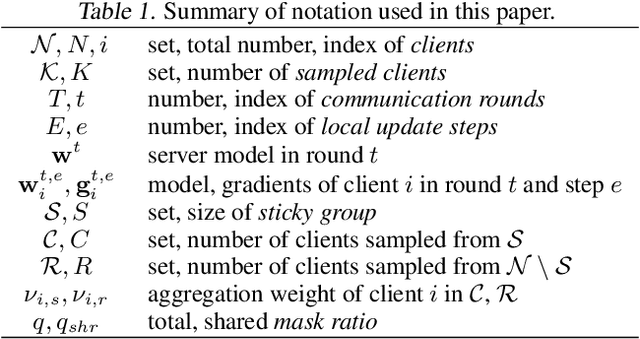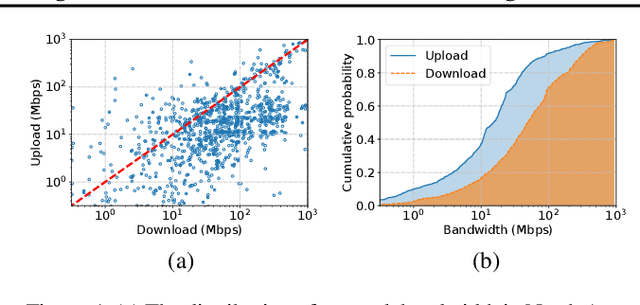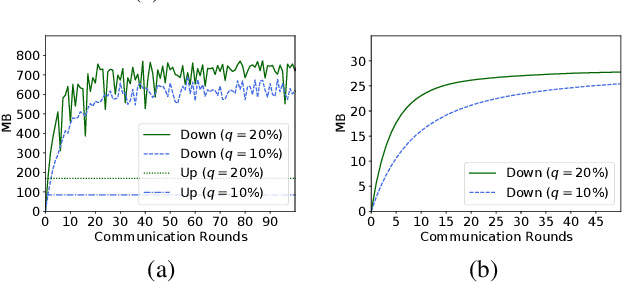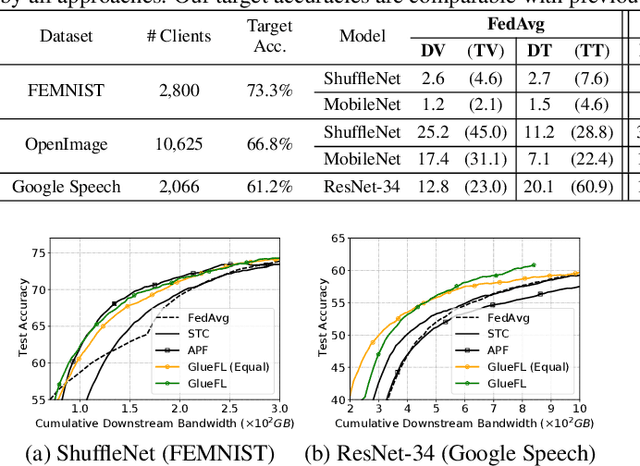Qifan Yan
FedFetch: Faster Federated Learning with Adaptive Downstream Prefetching
Apr 21, 2025Abstract:Federated learning (FL) is a machine learning paradigm that facilitates massively distributed model training with end-user data on edge devices directed by a central server. However, the large number of heterogeneous clients in FL deployments leads to a communication bottleneck between the server and the clients. This bottleneck is made worse by straggling clients, any one of which will further slow down training. To tackle these challenges, researchers have proposed techniques like client sampling and update compression. These techniques work well in isolation but combine poorly in the downstream, server-to-client direction. This is because unselected clients have outdated local model states and need to synchronize these states with the server first. We introduce FedFetch, a strategy to mitigate the download time overhead caused by combining client sampling and compression techniques. FedFetch achieves this with an efficient prefetch schedule for clients to prefetch model states multiple rounds before a stated training round. We empirically show that adding FedFetch to communication efficient FL techniques reduces end-to-end training time by 1.26$\times$ and download time by 4.49$\times$ across compression techniques with heterogeneous client settings. Our implementation is available at https://github.com/DistributedML/FedFetch
GlueFL: Reconciling Client Sampling and Model Masking for Bandwidth Efficient Federated Learning
Dec 03, 2022



Abstract:Federated learning (FL) is an effective technique to directly involve edge devices in machine learning training while preserving client privacy. However, the substantial communication overhead of FL makes training challenging when edge devices have limited network bandwidth. Existing work to optimize FL bandwidth overlooks downstream transmission and does not account for FL client sampling. In this paper we propose GlueFL, a framework that incorporates new client sampling and model compression algorithms to mitigate low download bandwidths of FL clients. GlueFL prioritizes recently used clients and bounds the number of changed positions in compression masks in each round. Across three popular FL datasets and three state-of-the-art strategies, GlueFL reduces downstream client bandwidth by 27% on average and reduces training time by 29% on average.
 Add to Chrome
Add to Chrome Add to Firefox
Add to Firefox Add to Edge
Add to Edge